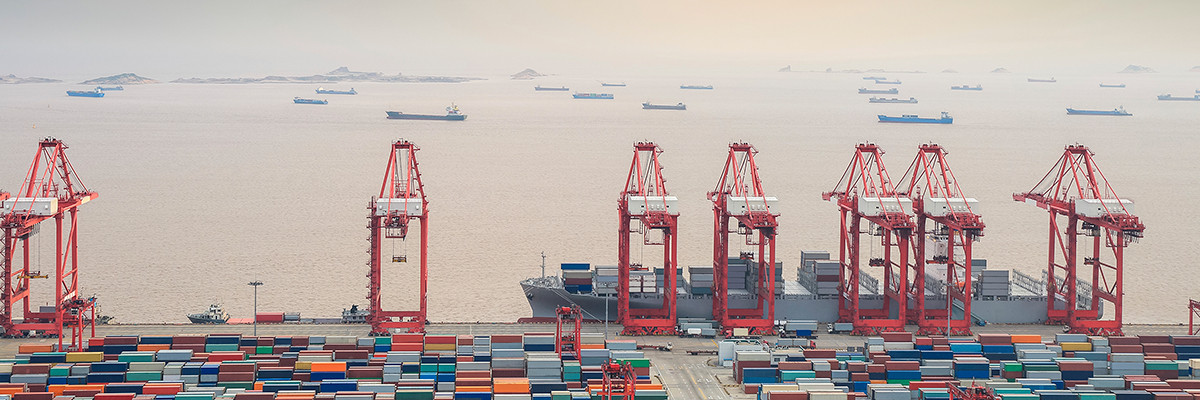
Authors
-
Julia Beier
Former Associate, BSR
Yesterday was International Anti-Corruption Day, and today the UN Global Compact celebrates the 10th anniversary of its Principle 10, which states, “Businesses should work against corruption in all its forms, including extortion and bribery.” Over the last decade, both the public and private sectors have made progress on raising awareness about the impact of corruption, including through the establishment of the OECD Anti-Bribery Convention and the United Nations Convention against Corruption.
While we can celebrate this progress, corruption continues to negatively affect investment, trade, and economic growth, as well as equality and prosperity in communities. Corruption is identified as the top impediment to conducting business in 22 out of 144 economies, according to the World Economic Forum's Global Competitiveness Report.
Through our work with BSR member companies and other partners, we have learned that individual corporate codes of conduct, industry self-regulation, government regulation, and civil society activism are all important measures to fight corruption, but that collective action across sectors and with other stakeholders is crucial to tackling corruption’s deep roots.
The Maritime Anti-Corruption Network (MACN)—a global business network working to eliminate corruption in the maritime industry—is one example of collective action at work. BSR serves as MACN’s secretariat.
I recently spoke to MACN’s Chair, Cecilia Müller Torbrand, who is also legal counsel for anticorruption and foreign trade controls at Maersk Group, about how far the network has come, where it’s going, and why she believes collective action is critical to mitigating corruption risks.
Tell us about the launch of MACN—where did the idea come from, and how has the network evolved?
At the end of 2010, Maersk explored whether industry peers were interested in collaborating on anticorruption efforts. We gave it a go, acting as the secretariat to build momentum. After a year, the network had grown, and it was time to make it more official, which we did in the beginning of 2012, with BSR named as the secretariat.
We were eight companies at the first meeting, and MACN has grown rapidly over the past two years, with 44 member companies in 2014, comprised of vessel-owning companies and others across the maritime supply chain.
Our members work on implementing MACN’s seven anticorruption principles and engage actively in our various work streams, which are the cornerstones of achieving our mission. One work stream, our Collective Actions Program, aims to identify specific challenges in hotspot regions and develop action-oriented recommendations to tackle bribery and corruption.
Why does MACN have a collective action approach?
MACN members recognize that they need to take a firm stance against corruption and actively fight it, while working with peers and stakeholders to achieve the systemic changes in the external operating environment required to eliminate corruption in the maritime industry.
The essence of the MACN collective action approach is that successful, lasting changes in the operating environment will only take full effect if they are supported by and beneficial to key stakeholders. MACN’s collective actions work is based on stakeholder inclusiveness, local ownership, and transparency.
Can you provide an example of a collective action program that you have undertaken?
In 2012 and 2013, MACN conducted a risk assessment study in the Nigerian port sector with the United Nations Development Program (UNDP) and the Technical Unit on Governance and Anti-Corruption Reforms (TUGAR) to identify the main drivers of corruption in the sector and specific actions that public and private sector stakeholders could take to fight against it. Some of the main challenges included weak internal ethics infrastructure and enforcement practices in port agencies (such as lack of codes of conduct), underdeveloped systems for investigating complaints around demands for bribes or facilitation payments, and the absence of an effective system to handle grievances and protect whistleblowers.
The study recommended three short-term actions to contribute to the elimination of corruption the Nigerian Port Sector:
- Develop capacity building programs to strengthen transparency and accountability of port stakeholders
- Develop and clarify standard operating procedures of port stakeholders
- Establish a port-level complaints mechanism for potential or actual acts of corruption
BSR and MACN also developed a summary brief of the original report (which was prepared by TUGAR).
What are MACN’s plans for 2015?
Next year, MACN aims to explore collective action programs in more countries where corruption is prevalent. We need to multiply the effects of individual action and create collective action to guarantee transparency in business, ensure fair competition, foster a level playing field, and strengthen good business practices.
Watch a video from the BSR Conference 2014 about the Maritime Anti-Corruption Network featuring BSR’s Angie Farrag-Thibault and UNDP’s Magdy Martínez-Solimán.
BSR’s latest sustainability insights and events straight to your inbox.
Let’s talk about how BSR can help you to transform your business and achieve your sustainability goals.